Capacity Building in IA&AD
Mission statement of IA&AD eloquently states “Mandated by the Constitution of India, we promote accountability, transparency and good governance through high quality auditing and accounting and provide independent assurance to our stakeholders, the Legislature, the Executive and the Public, that public funds are being used efficiently and for the intended purposes.” In order to match our deeds with words, we need to observe an exemplary degree of professional excellence and competence. Easier said than done. An ever changing dynamic environment combined with increasing expectations of stakeholders poses an incessant challenge in maintaining the highest standards of objectivity and professionalism.
It is to meet this commitment to promoting good governance and accountability that the IA&AD strives to constantly upgrade its professional skills and acumen through its robust training capacity. Our training strategy is oriented towards equipping personnel with the understanding, skills and access to information, knowledge and training that enables them to perform effectively. No mean task, given that the job requirements include understanding of statutes, rules, regulations, contracts, tax and revenue laws, assessing the financial health of commercial corporations etc. and range from analysing the complexities of oil exploration or the working of an atomic power plant to comprehensively reviewing the effectiveness of implementation of country-wise schemes for rural development, health services, education etc. No wonder, training is a fundamental activity in the IA&AD, with over 300 officials dedicated full time to smooth running of our training infrastructure.
Facets of Training

Broadly speaking, our training activities include:
• Induction training for IA & AS officers and officers of other SAIs.
• Induction training for Direct Recruit Assistant Audit Officers.
• Continued Professional Education for officers and staff of IA&AD.
• Training courses for other services/ departments/ state governments/ public sector undertakings.
• International training courses for other SAIs.
To carry out these training programmes, the IA&AD has a vast network of training facilities spread all over the country:

• National Academy of Audit and Accounts (NAAA), Shimla ,our apex training institute plays a vital nurturing role in ensuring IAAS officers receive comprehensive and holistic training;
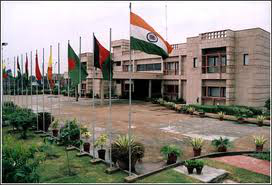
• International Centre for Information Systems & Audit (iCISA), Noida, the hub for capacity building in the area of Information technology and e-Governance, also houses the INTOSAI Collaboration Tool that provides a platform for collaboration amongst SAIs globally;
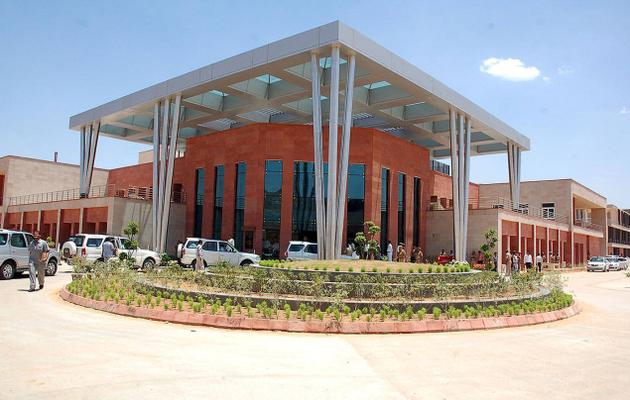
• International Centre for Environment Audit and Sustainable Development (iCED), Jaipur, is also the Global Training Facility for INTOSAI;
• Nine Regional Training Institutes and
• Three Regional Training Centres across the country.
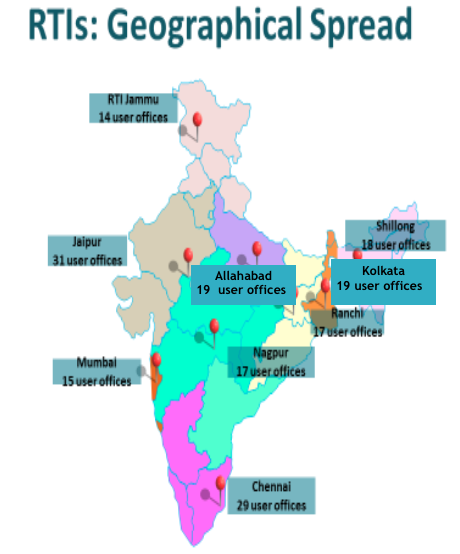
The strategic priorities of RTIs/ RTCs are training of Group B and C staff and sharing of knowledge and experience so all members of IA&AD are able to access best practices in their field.In addition, all field offices have in-house training facilities.
Merely listing our training activities and facilities does not convey the value added of training programmes, which must be viewed in terms of the nearly ₹50 crore spent last year on running these facilities and more importantly, the opportunity cost of diverting scarce human resources from their core function.
Increasingly our focus has been on carefully performed training needs assessments, assessment of already existing capacity, priority setting, content and programme design. This has to be followed through with effective delivery in an environment conducive to adult learning. Our objective is to enable all individuals in the organization to function at their highest potential capacity – to create, in effect, a ‘capacity releasing’ organization.
It was with this objective that we undertook some soul searching – despite RTIs/ RTCs conducting over 700 training courses in 2013-14, covering nearly 13000 personnel, why was the general perception of quality and impact of training not positive, especially in respect of utility of training courses, faculty competence and quality of infrastructure. While recognizing that these concerns had to be addressed, it was also apparent that the gap between expectations and reality, and between reality and perceptions, is partially attributable to increased demands from training in view of the new challenges faced by the IA&AD and enhanced expectations from it. This underscored the fact that training strategy and its execution cannot afford to be static.
Training strategies have to be aimed at knowledge retention and transfer to the workplace, enabling employees to be more effective and to acquire more skills. In order to be useful, training must be targeted, based on identified needs with clear and shared learning objectives, and the quality closely monitored. Delivery has to recognise the specific characteristics of adult learning including ‘zoning out’; and use varying pedagogy and be multi-media driven, practical and participative, example oriented, and complemented with exercises.
A number of measures have been undertaken and are underway as we strive to become a ‘capacity releasing’ organization. These include regular and systematic training needs analysis, standardising peer reviewed training content and modules prepared by subject experts, standardized procedures, modernization of training facilities, etc.
Critical, new or different skills needed to meet the latest challenges are constantly being identified. A case in point is developing the ability to audit in an IT environment. There has been a paradigm shift in the IT environment and most auditee organization have moved to ERP systems or have developed their own stand-alone IT systems. Data analytical tools have changed from the conventional Excel, IDEA to new and emerging tools like Tableau and Qlikview. This necessitated our quick transition to develop capacities for auditing in the current and rapidly evolving IT environment.
As against the traditional approach to capacity building which focuses on transferring knowledge to individuals, an action based approach that enhanced capacity to meet our organization’s specific needs was adopted. As a first measure, the focus areas for audit, the target group for training, the existing resources and the strategy to extend this training at a very fast pace in the Department were identified.
To enable our audit personnel to audit in an ERP environment, pilot training programmes were organised in conjunction with auditee organizations. These programmes combined theoretical inputs with hands on exercises on practical audit checks to be exercised for distinct business processes, through querying the auditee’s database. They focused on familiarization with navigation and development of adequate capacity for data extraction from different modules (business processes) of ERP applications, such as Financial Accounting, Material Management, HR Management, Sales/Distribution for subsequent analysis. Further, observers attended the early programmes to assess efficacy of the programme and ensure necessary modifications taking into account participants’ feedback.These trainings were video graphed and developed into e-learning modules with extensive use of screenshots, supplemented with practical step-wise reference manuals to enable future trainings as well as to serve as guides for audit parties to navigate through the software and to extract and analyse data while undertaking such audit.
Besides, a structured training module was developed to equip audit offices for auditing in home grown individual software of audit entities. The new STM ensures a uniform and comprehensive module for use across the country. All RTIs / RTCs are conducting these standardized courses every month.
A user friendly e-module has been developed for self-learning which familiarizes and enables audit staff to work with disparate softwares being used by our multifarious auditee agencies spread across the country. This e-module titled ‘Introduction to IT Audit’ has been widely disseminated; and officers are encouraged/ incentivised to clear the in-house test based on the e-module by making such clearance a pre-requisite for prescribed coveted assignments.
The extensive use of technology combined with standardization of course modules and contents has enabled us to hasten developing capacities in auditing in IT environment. Our next challenge is to undertake widespread capacity building in statistical analysis and data analytic tools like Knime and Tableau for optimal utilization of available big data for effective auditing.
A regular and more scientific approach to Training Needs Analysis revealed that even our areas of specialization should be updated as well as expended. Accordingly, the domain specialisations of RTIs/ RTCs as Knowledge Centres were reviewed in 2015, in order to improve domain knowledge and its translation into training material.

The review exercise aimed at more effective knowledge management, encompassing sharing of knowledge within the department to identify best practices and find synergies among functional departments; and retention of organizational knowledge, in the face of impending retirements. As Knowledge Centres, the RTIs/RTCs conduct focused training programmes and develop structured training modules, case studies and other reading material on a regular basis. These are qualitatively peer reviewed before dissemination.
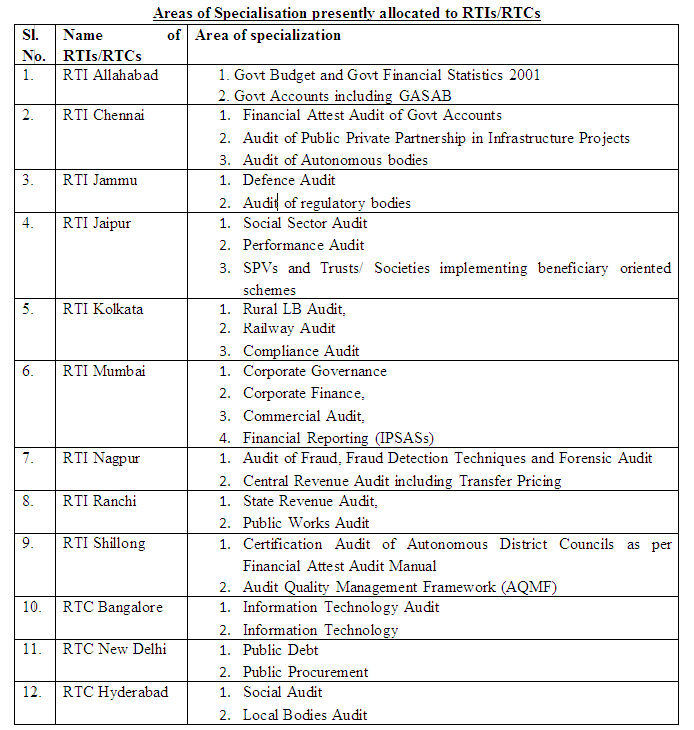

A significant innovation in recent times has been the progressive introduction of e-learning in the Department. Training wing’s e-Learning initiative, “Reach Out”, has prepared e-Learning modules completely in-house at no cost. The learning content is developed according to a carefully identified set of learning objectives, duly reviewed by subject matter experts. These e-modules enable people to learn “Anytime-Anywhere”, while ensuring consistent quality. It is a flexible mode of learning, utilising standardized expert input and reaching out knowledge to the maximum number with minimum dislocation.
The following five e-Learning modules have been developed so far, utilising the expertise of officers nominated for content development:
i. Auditing in ERP Environment – Oracle Financials,
ii. Auditing in ERP Environment – SAP
iii. Awareness of ISSAIs
iv. CAG’s DPC Act 1971
v. Introduction to IT Audit
To widen dissemination and to truly facilitate “Anytime-Anywhere” learning, a mobile version of e-Learning module on “Awareness of ISSAI” has also been forwarded to smart phones using “Whatsapp” application.Once the eLearning module is downloaded by the user, he/she does not require an internet connection to view the contents.
At present, content for e-Learning modules on Audit Regulations, Disciplinary Proceedings and Introduction to Commercial Accounts is under development.It is proposed to also prepare a Hindi version of the module on Disciplinary Proceedings.
While qualitative improvements are crucial, they need to be complemented with appropriate training infrastructure. Our RTIs till very recently, presented a sorry picture. Poorly equipped, they offered an environment most unsuited to learning. The class rooms, library, EDP labs, hostel accommodation, recreational facilities were all very basic and primitive. Rather than implying a refreshing sabbatical, nomination to a residential course was perceived as an ordeal. Modernising these ‘temples of learning’ was imperative; and infrastructural improvement of RTIs was taken up on priority to enhance the learning environment.
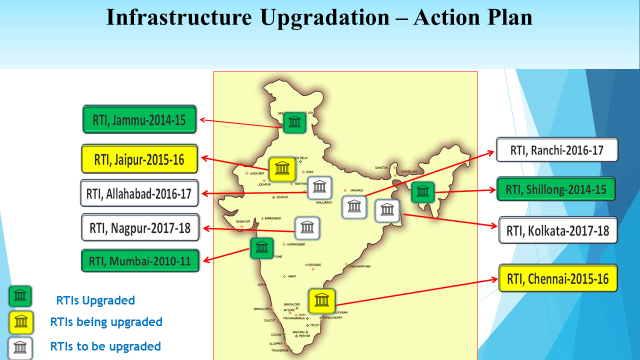
Glimpses of the upgraded RTIs reflect the CAG’s priority for providing a conducive and comfortable environment for learning and energising capacity building.
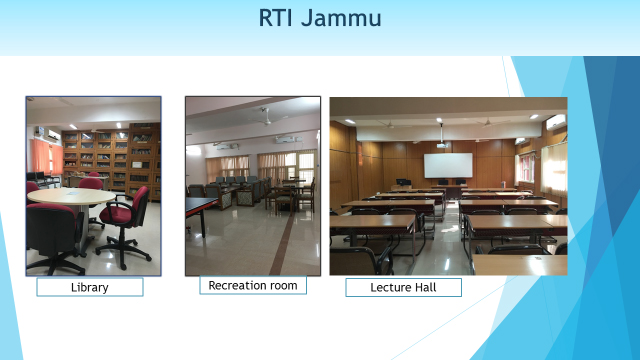
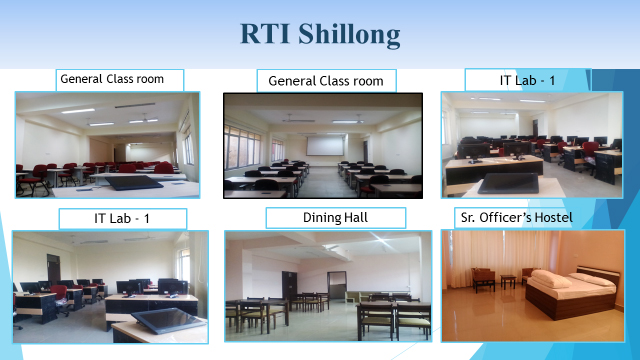
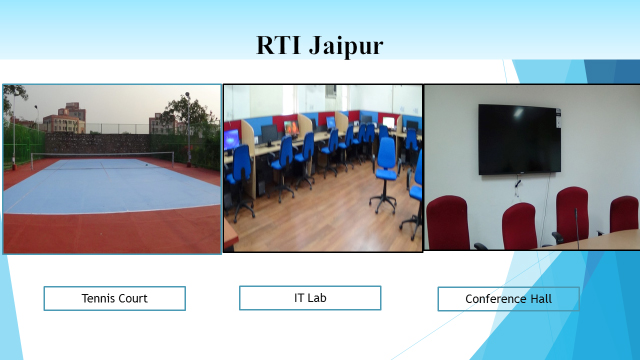
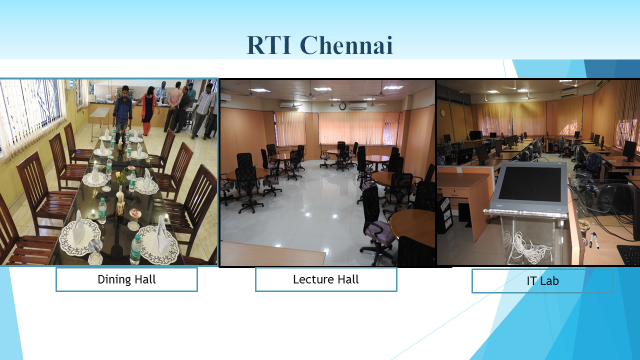
Having adopted numerous quality measures – both academic and infrastructural, it is crucial to ensure that the effort is sustained and capacity building endeavour has greater impact. Accordingly, an annual performance monitoring exercise has been initiated to internalise and institutionalise excellence by linking RTIs internal processes to stakeholders expectations, ensuring a quality learning environment and necessary facilities to effectively impart training as well as function as knowledge centres.
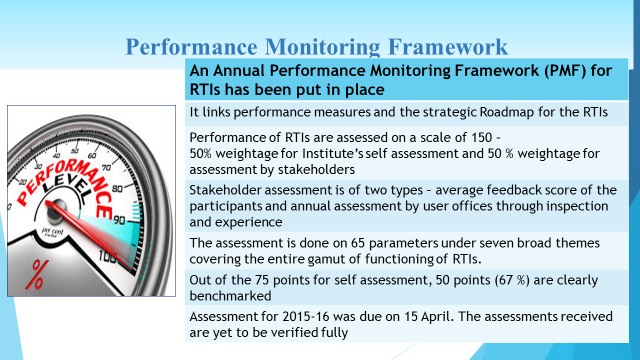
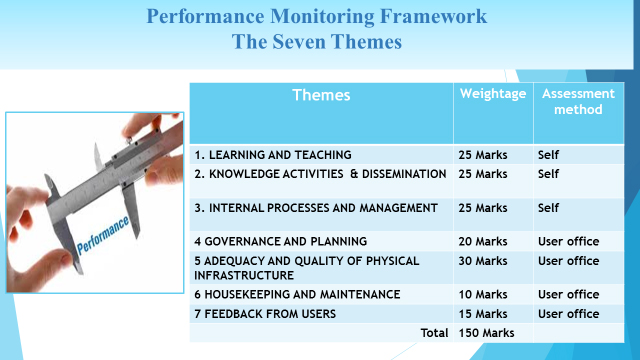
The significant weightage to stakeholder assessment and clear benchmarking of the self-assessment component is a clear indicator of commitment to incorporate all the wisdom and feedback, in order to improve future iterations of capacity building activities.
Having narrated at length the flurry of activities in the training realm and the excitement it engenders, I would like to reiterate the compelling need for our department to incessantly strive to upgrade our professional skills, by highlighting the President of India’s observation while inaugurating the Biennial Accountants General Conference 2014 –“As watchdogs of national public finances, the institution of CAG has a positive and pre-eminent role in accelerating national development.”
In conclusion, “The capacity to learn is a gift; The ability to learn is a skill; The willingness to learn is a choice.” Please do exercise the choice favourably, actively seek and participate in training, and inundate the Training Wing with feedback and suggestions.

Continue Reading |
-

From the Editor's Desk
This issue of the journal is the first issue with a thematic approach of “Capacity Building”. It will be our endeavour to continue this approach in future
...more
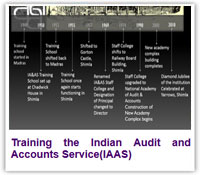
Training the Indian Audit and Accounts Service(IAAS)
The Officer Trainees (OTs) entering the Indian Audit and Accounts Service(IAAS)
...more
-
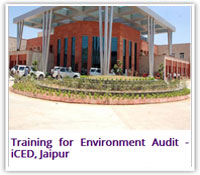
Training for Environment Audit - iCED, Jaipur
iCED also contributes to build capacity of other Supreme Audit
...more
-
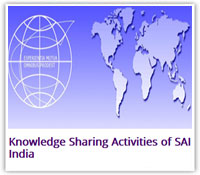
Knowledge Sharing Activities of SAI India
Comptroller and Auditor General of India(SAI India) is acknowledged as a leading
...more
|
-
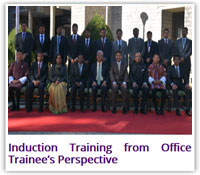
Induction Training from OTs’ Perspective
Journey from a civil services aspirant to a successful candidate and further to a
...more
-
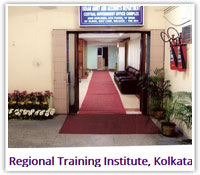
Regional Training Institute, Kolkata
In pursuit of excellence
Regional Training Institute, Kolkata was set up in April 1998 as Regional Training Centre.
...more
-

From International Desk
The CAG of India occupies several important positions in INTOSAI and ASOSAI.
...more
-

Important Communications
Amendment to Para 7.12 of PA Guidelines, Compliance Auditing Guidelines, Practitioner's Guide for use of Data Visualisation & Infographics
...more
-

From the Editor's Desk
This issue of the journal is the first issue with a thematic approach of “Capacity Building”. It will be our endeavour to continue this approach in future
...more
|
|
|
|
|